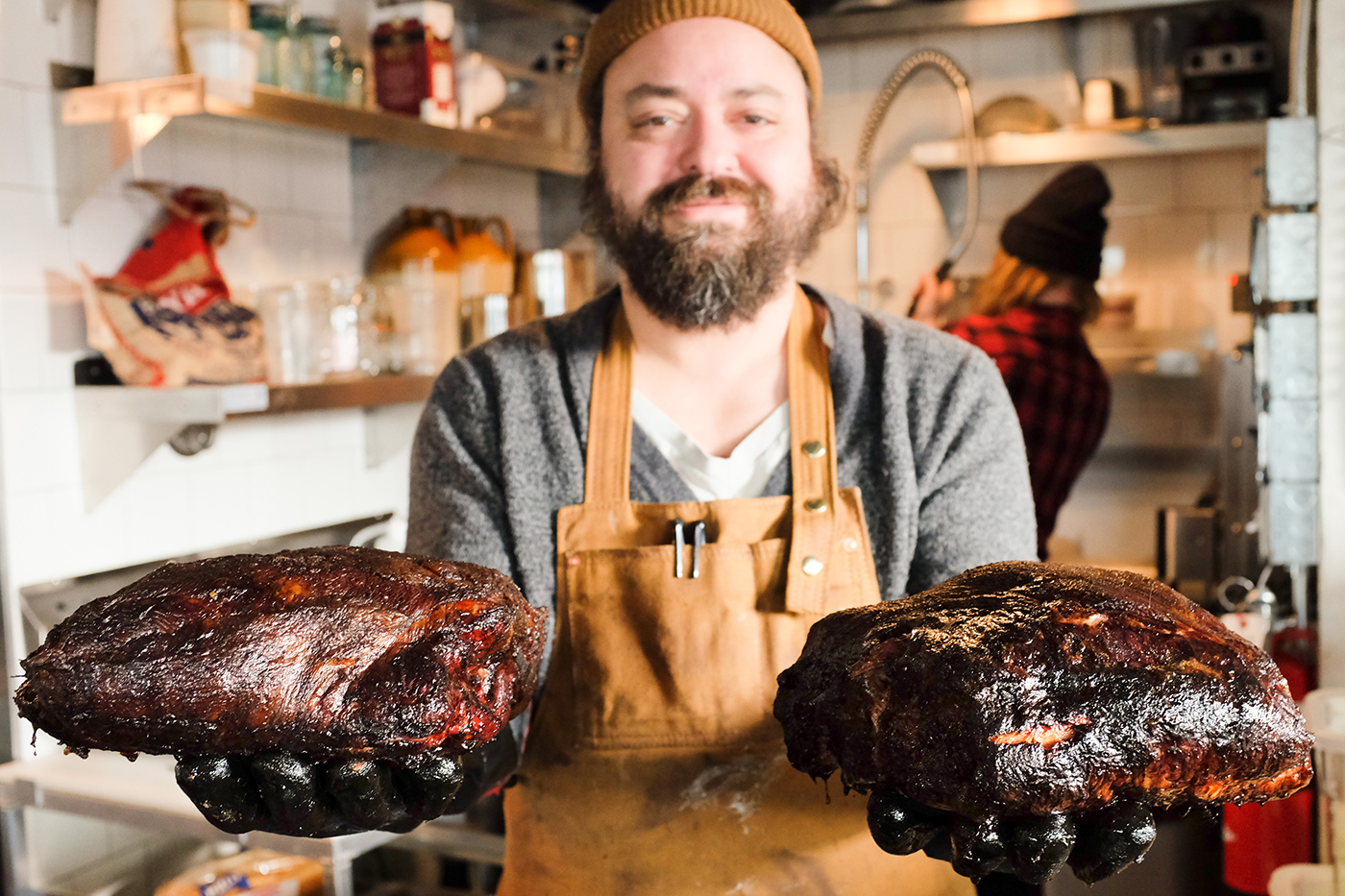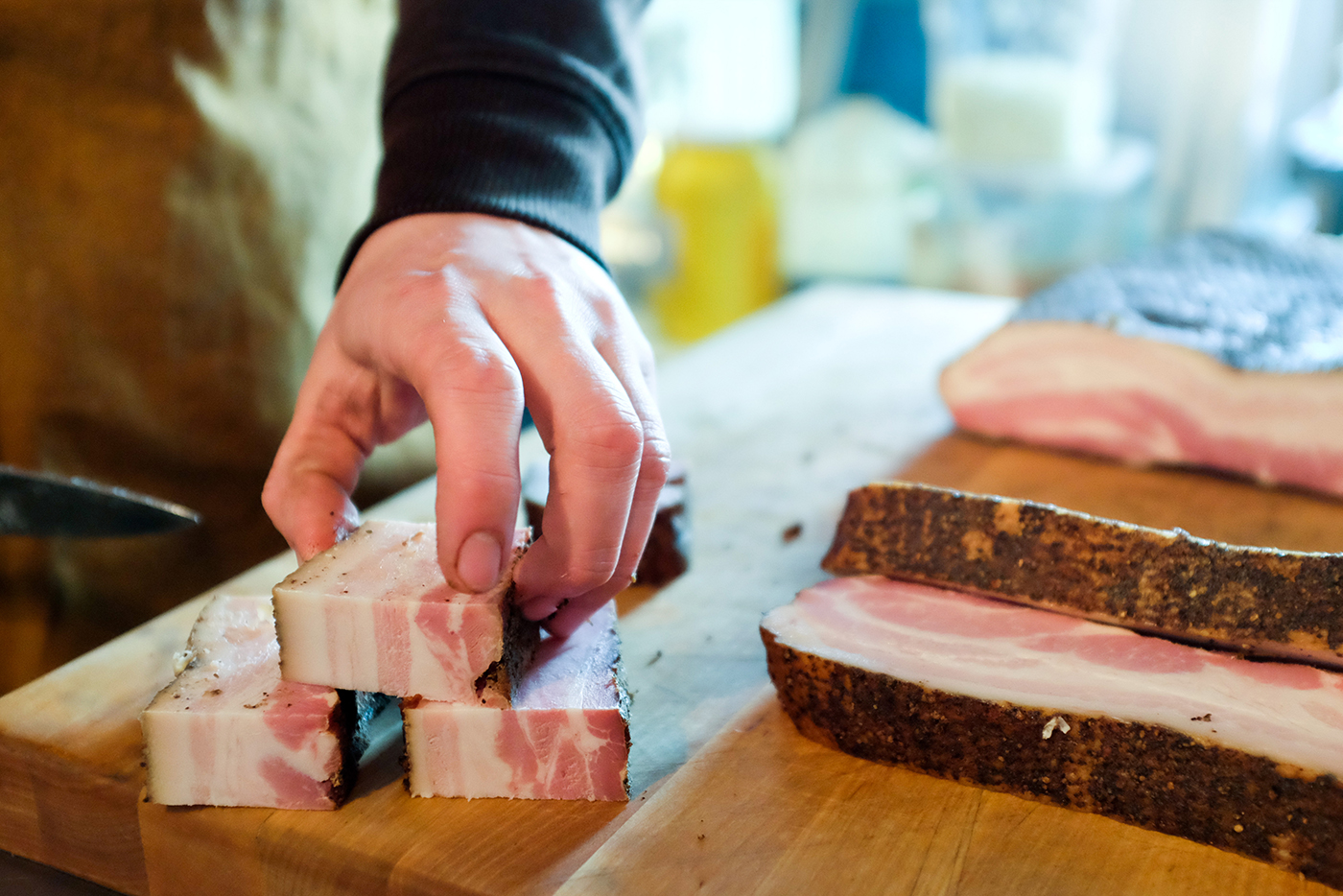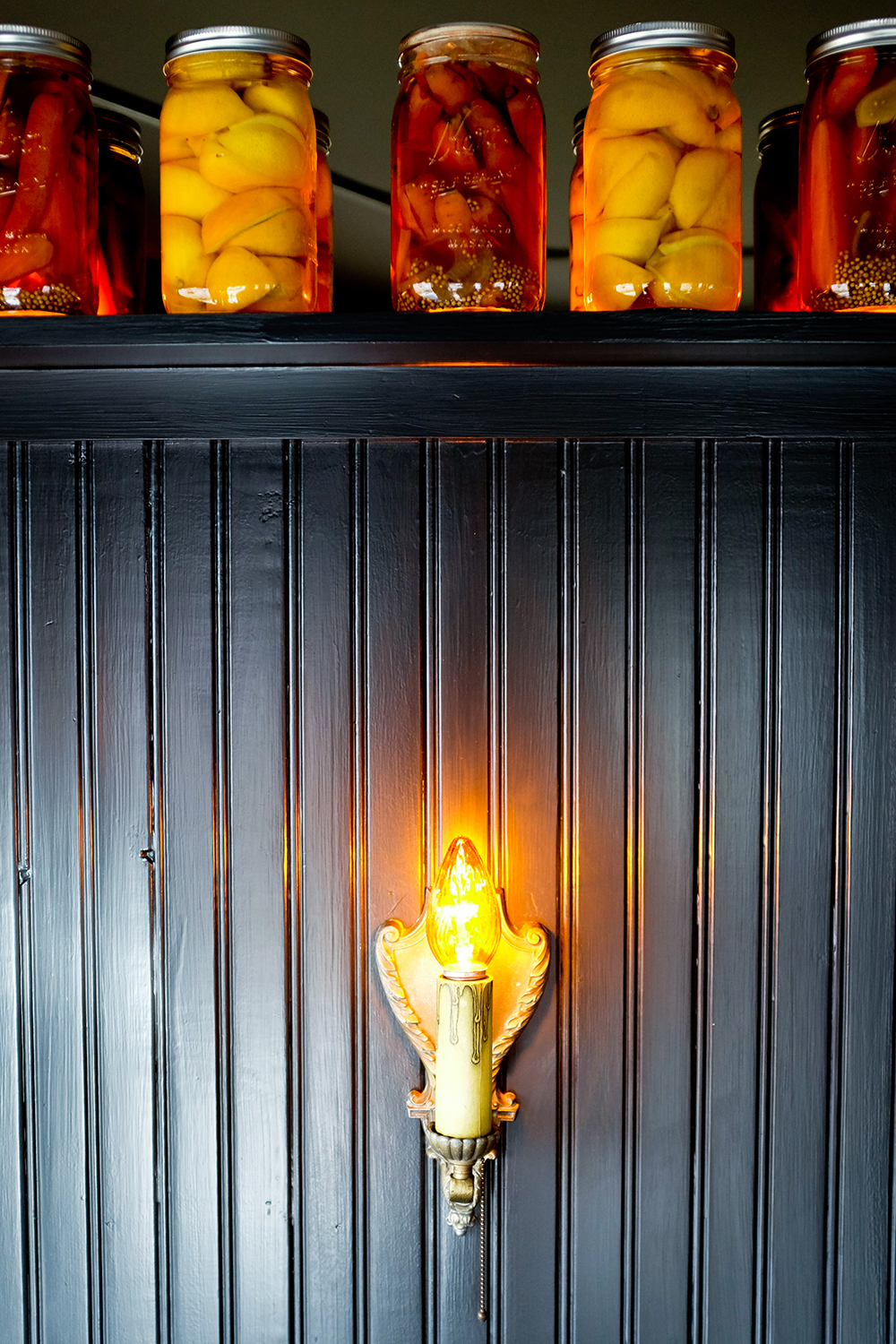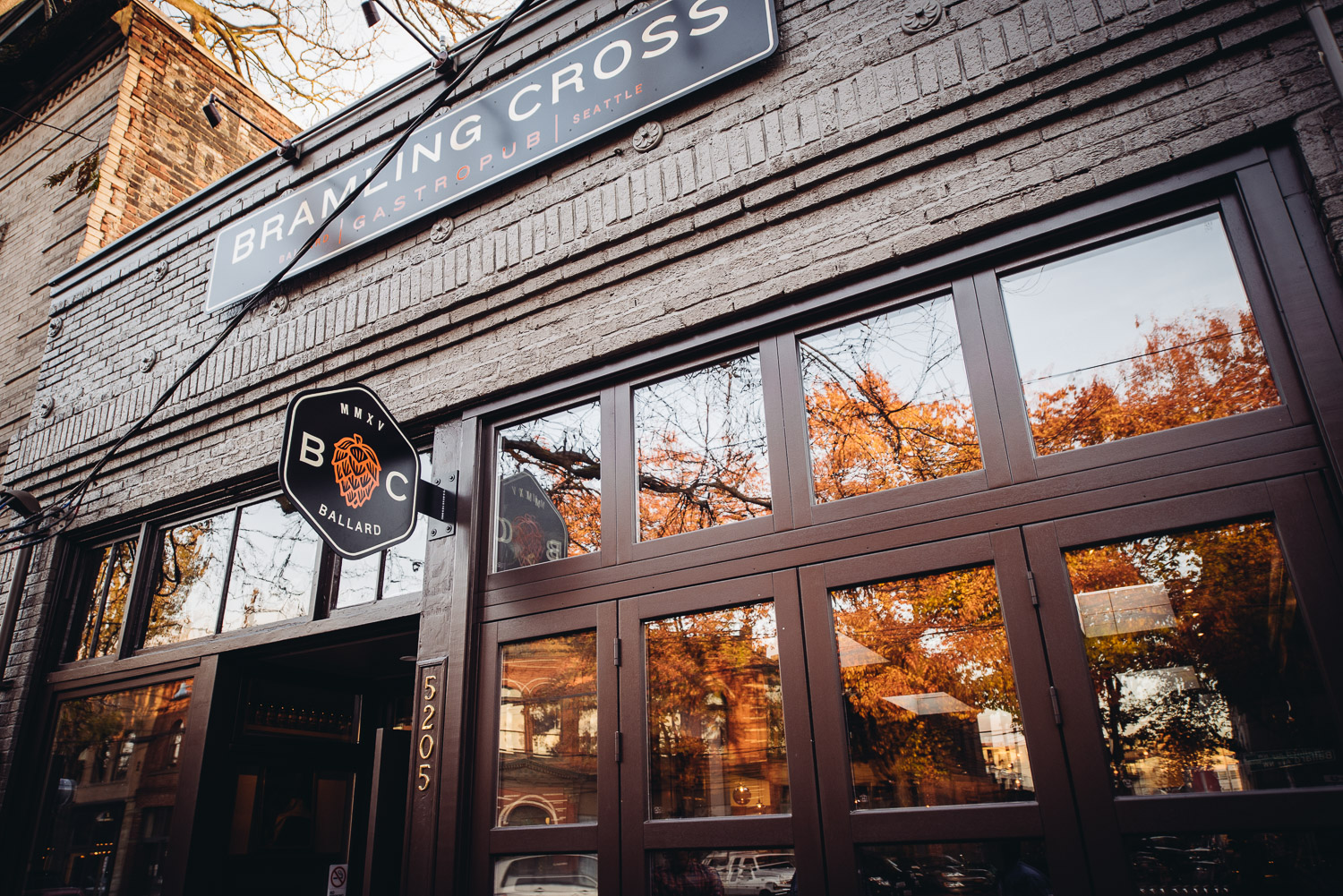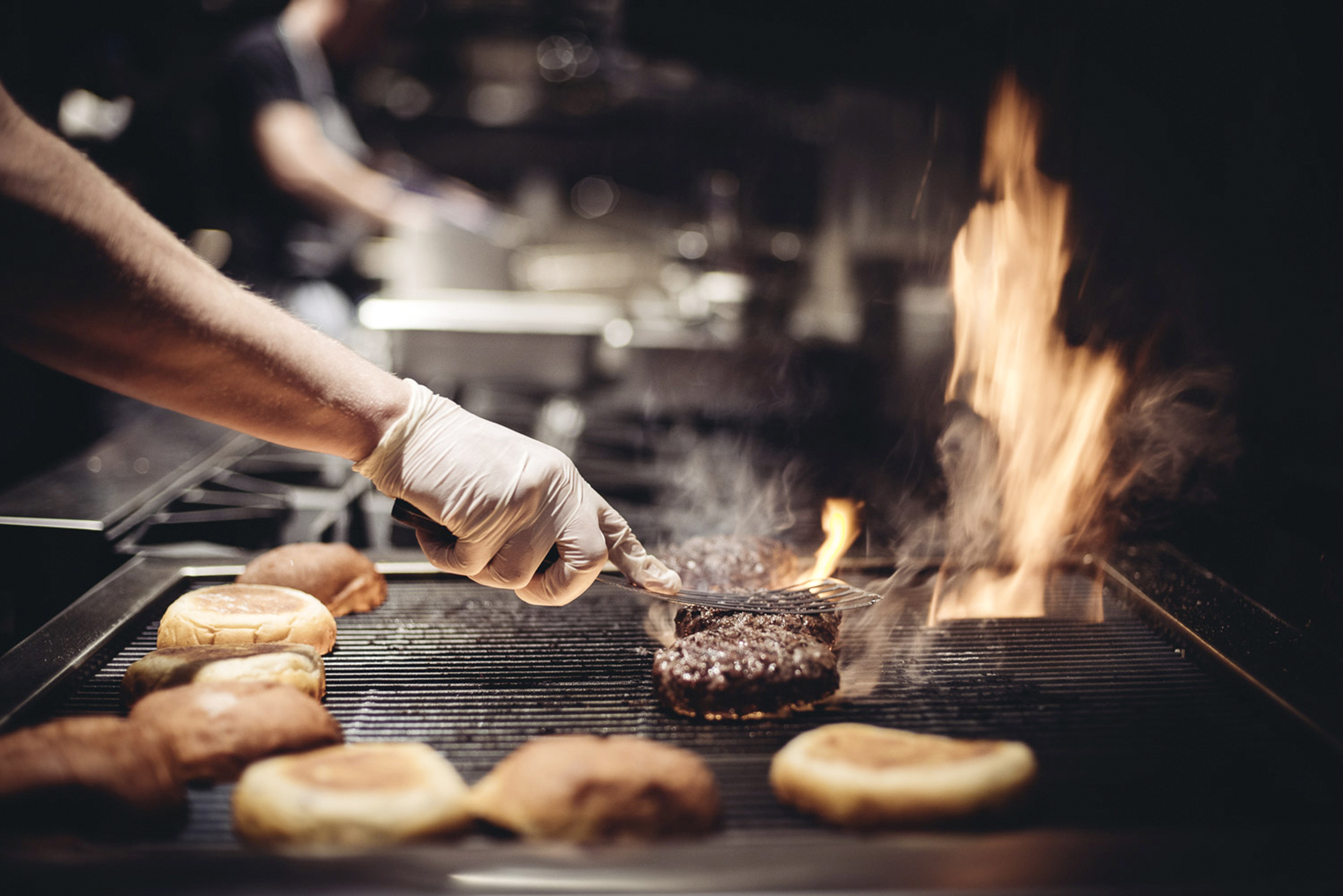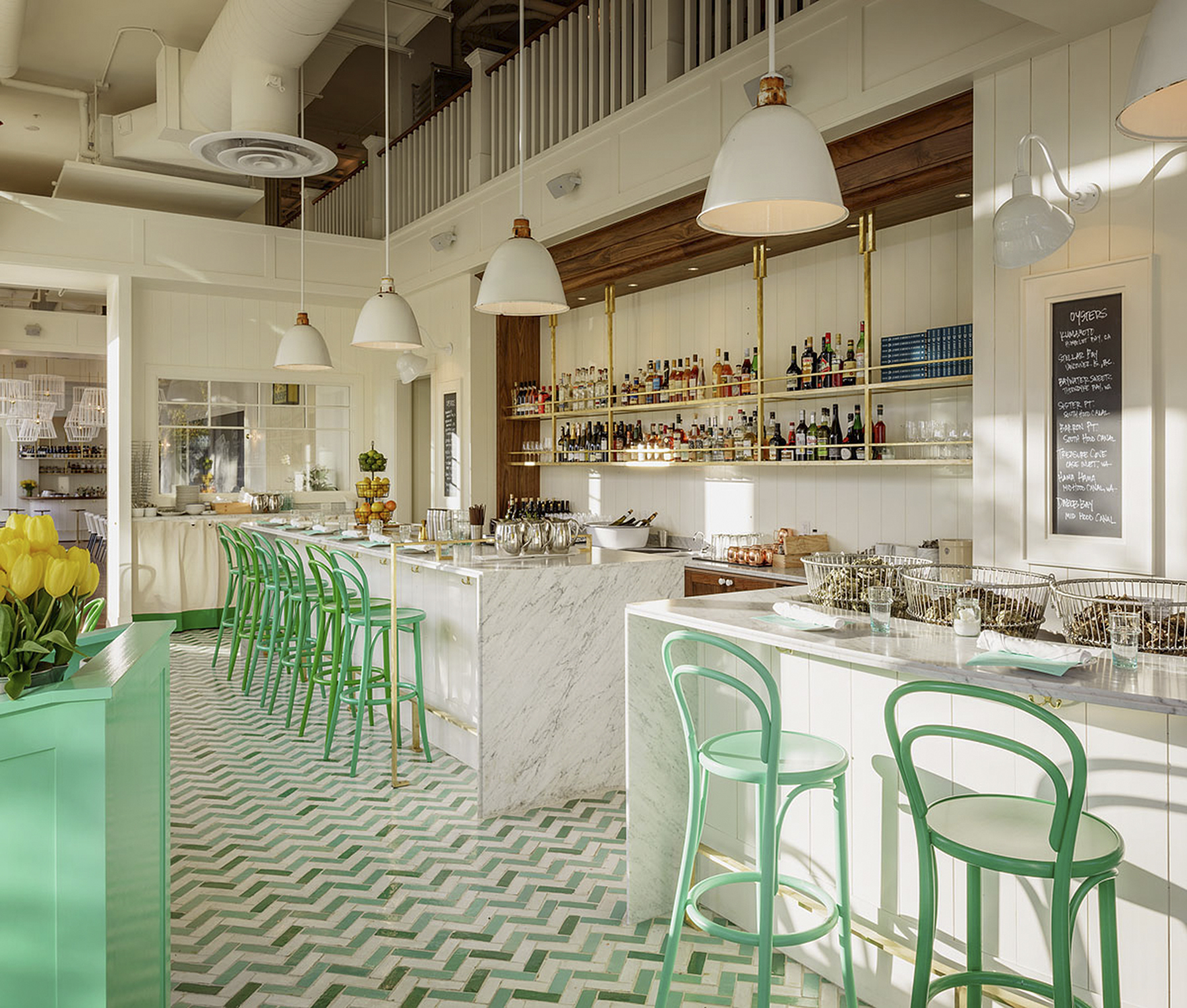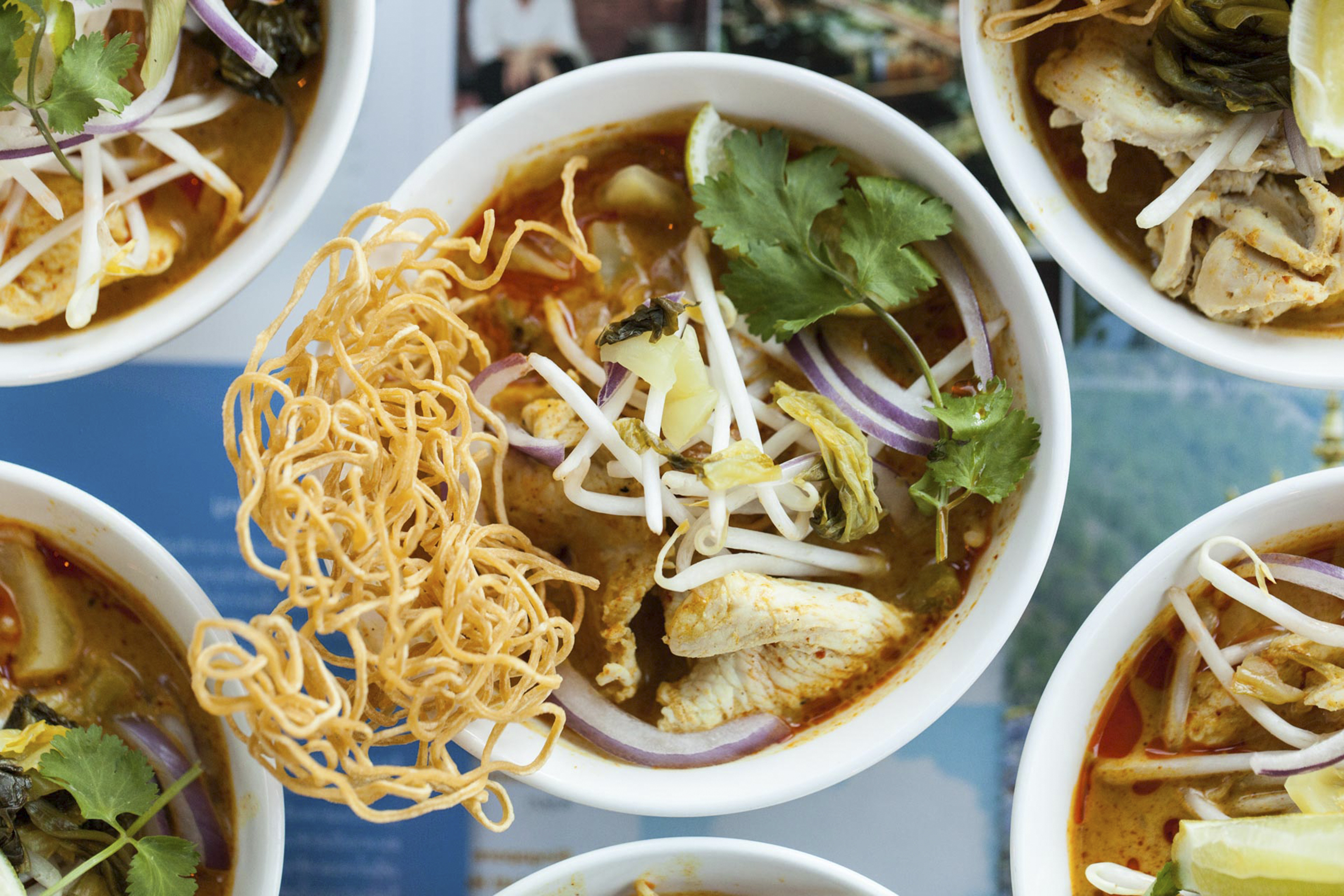Going into my coffee date with Mike Law, I knew that the Seattle chef was a Southerner from Winston Salem, North Carolina. You can taste it in his fried chicken, responsible for bringing a fervent following to The Wandering Goose during the small Capitol Hill restaurant’s Friday fried-chicken nights. And you can read it in the name of his new venture, Bourbon & Bones, which opened this month.
So when we met at Caffe Vita on Capitol Hill last August to talk about Law’s plans for the new Ballard restaurant, I looked right past him when he walked in the door. Thing is: Law, with his dark eyes, dark hair and beard, and olive skin, doesn’t immediately register as Southern, at least not in that cliched, good-ol’-boy kind of way. And that’s because, in fact, he’s half Dominican—something a lot of people don’t know. But when he speaks, his soft, lilting Southern accent can’t be missed. Turns out his father met his mother while in the DR with the Peace Corps (“a schoolteacher who built chicken coops”) and brought her back to North Carolina.
Growing up, Law spent whole summers in the DR or in Washington Heights in New York City, visiting relatives who lived among the area’s huge Dominican population. I’d only just moved from Washington Heights a few years prior, and could still taste the addictive fried chicharons (pork rinds) that are found on nearly every corner. We talked about some of the great Dominican dishes up there. I had to remind myself that we were here to discuss “Southern” food, but, as Law made evident, that classic distinction is not as clear-cut as we’re often led to believe.
He mentions, for instance, the gas stations in the South that sell pickled eggs in beet liquid, which leads him to expound on the region’s often-unrecognized diversity. “There’s a lot of Chinese influence there, Chinese immigrants who came to work on the railroads, along with Africans.” The Chinese have pickled cabbage and other vegetables for soups for thousands of years. “Chow Chow” is basically a spicy, sweet relish that has origins in Chinese cooking, according to Law—and that is often sold at roadside stands in the South. He uses it as a dipping sauce for his bourbon-soaked gizzards. Likewise, a country ham biscuit with molasses or sweet mustard is also a play on the sweet-and-sour taste profile for which the Chinese are famous.
And then there’s his mother, who inspired his love of cooking and was a practitioner of a hybrid of Southern and Dominican food. “She was really good with soups, meat, pastry. She would smoke things. And we always had a garden, so we ate a lot of fried tomatoes and smothered greens. She made sancocho stew (a South American soup) that in the DR version has six types of meat in it, including ham hock and smoked bacon.” Law is smoking his own pork-belly bacon at Bourbon & Bones, and it’s something to be reckoned with: thick, squarish slices that look more like miniature steaks.
From his mom, Law also grew to love a traditional “pernil”—essentially a pork shoulder marinated with a spicy “mojo” marinade that usually includes some kind of citrus. “I make a version called ‘Pique’ that’s a pineapple-fermented sauce,” Law says. And while she’d turn out a soupier version of cobbler from the North Carolina town of Mt. Airy, she also made a mean flan (the South American creme caramel dessert). There were plenty of Southern traditions too: family fishing trips and the resulting fish frys; boiled blue-crab feasts. But just as vivid were his childhood summers with his grandmother in the DR, in a little village with no electricity: “We used lots of charcoal and wood, and ate lots of cold, raw things.”
It’s perhaps no surprise, then, that Law had a 10-foot-long, 10-foot-high walk-in smokehouse custom-built for Bourbon & Bones—a throwback to those provincial summers, as well as to the South’s preoccupation with smoked foods. “I can smoke a whole pig, bacon, andouille sausage,” Law says (he spent eight years as a chef in New Orleans). “The doors open up, there are lots of racks.” There’s also a spit to hang a whole pig and hooks for bacon and sausages.
His excitement is palpable. He jumps to memories of the barbecue pits of North Carolina—“some guy chopping up whole pigs on a Sunday alongside the road”—and on to the state of Southern food in Seattle. “It’s all kinda watered-down . . . not that flavorful. There’s a lot of love that has to go into it. That’s why my short ribs braise for 48 hours.” And it’s all about the process, according to Law: “Anyone can take an expensive piece of meat . . . but the person who can take something that would get thrown away and make it amazing . . . ”
Everything gets used in Law’s process; the end pieces of the brisket are chopped and added to the baked beans and the smothered greens. He makes his own rubs—the key to a good one is “garlic powder, onion powder, cayenne, paprika, black peppercorn” — which will even get incorporated into bitters for bourbon cocktails.
In Germany (yup, he spent time there too) he became interested in fermenting, making “half-sour” pickles with no vinegar: “The recipes there just called for salting the cucumber and letting it naturally ferment to get the acidity.” The result is a fresher, still-tangy but not overwhelmingly sour flavor. (He plans to even pickle things like chanterelles and ramps at B&B.) In Barcelona (yes, add Spain to the list), he fell for the cold smoked clams, oysters, and sardines often served in tapas bars, which are “cooked slowly over olive oil and then canned.”
His final destination, this past fall, was to New York City, with business partner Mike McConnell, owner of Via Tribunali and Caffe Vita, to do a little R&D. Law tells me about a Brooklyn Southern restaurant called Fette Sau (“Fat Pig”) that he was particularly interested in, a place he felt was most similar to his vision for Bourbon & Bones. And while it’s unquestionable that Law knows all the right places to look for inspiration, I seriously doubt that any New York hot spot could be more helpful than his own varied and vibrant heritage.
This menu of influences—the Dominican Republic, China, Germany, and Spain—proves Law is far more than just another dude doing barbecue.
Jump ahead to Bourbon & Bones’
January opening night. It’s as if a roomful of the manliest actors has been hired to all come dressed as lumberjacks. Some, though, are holding babies. Law and his crew are clad in overalls and trucker hats. People are lining up at the register to order as they flag down seats. Meat comes by the pound or the bucket; the walls are adorned with a stuffed wild boar, the skulls of animals, and shelves of pickled vegetables. We find just about every kind of bourbon, including pricier Pappy Van Winkle, middle-of-the-road Old Overholt, and smaller-batch producers. The Grateful Dead is blaring, followed by the Cars. I want to try everything, but it’s not humanly possible.
I go for a “Carolina” fried-chicken breast; the key to getting it crispy but not greasy, Law had told me, is “to fry it at 300 degrees the whole way.” He marinades it overnight and coats it in the flour mixture right before it hits the fryer. “It’s all about maintaining the proper temperature. If the oil isn’t hot enough, the chicken absorbs the oil.”
I also order brisket, baked beans with pork belly, collards, those bourbon-soaked gizzards, and the slaw—tangy yet still just a tad sweet. Sadly, I have to forgo the sweet-heat ribs, the Lexington-style (“really smoked and vinegar-based”) pork shoulder, the grits (“traditional plain water grits with salt and pepper, not finished with butter”), the mac ’n’ cheese, the biscuits (“half shortening, half butter)—this time . . .
When I’m finally ready to bust (all for a mere $30, including a bourbon sour cocktail and tangerine Jell-O with whipped cream), I leave the small, still-bustling space and walk out into the cold night. The flames from the smokehouse are fully ignited, its aluminum ventilator towering high above the restaurant. Across the parking lot, Bad Jimmy’s brewery is lit up, and I think how brilliant it would be, given B&B’s tiny dimensions, to order carry-out and eat it over a glass of beer in the large, soaring brewery with its radiant heater. I file that one away for my next visit.
nsprinkle@seattleweekly.com
BOURBON & BONES 4350 Leary Way N.W., 582-2241. 4 p.m.–midnight Mon.–Thurs., 4 p.m.–2 a.m. Fri.–Sat.
